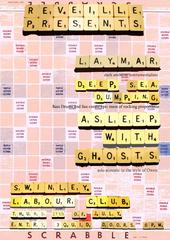Currently, ocean dumping is generally banned worldwide. The motivation for banning ocean dumping gained momentum when contaminated wastes from sewage-derived microorganisms were discovered at public beaches, shellfish beds were contaminated with toxic metals, and fish were infected by lesion-causing parasites. Coastal areas continually impacted by nutrients in waste products (primarily nitrogen) that run off the land eventually suffer from increases in toxic algal blooms and decreased oxygen levels, both of which can kill fish populations.
To some, the deep-sea floor may seem safe from the human disturbances that threaten terrestrial and coastal ocean environments. Yet, most natural and artificial wastes -- such as sewage sludge, mining tailings, fly ash from power stations, dredged spoils from harbors and estuaries, dangerous synthetic organic compounds and packaged goods -- make their way to the sea floor over time.
We are looking for gigs - please get in touch and we will come and spill out over your floor!
